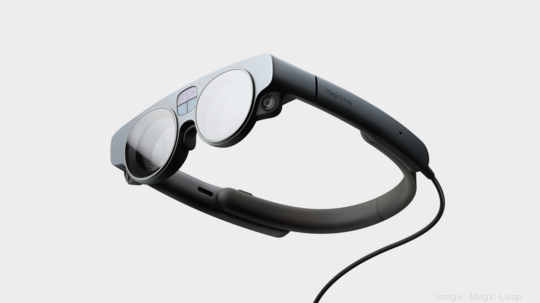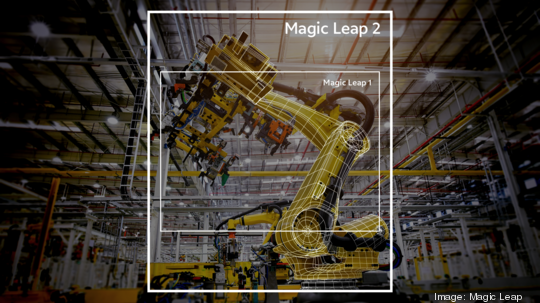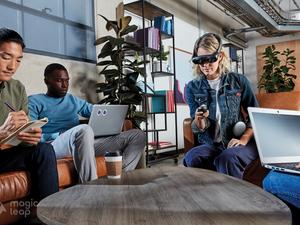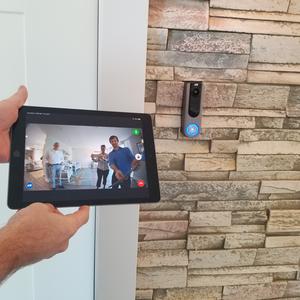
Magic Leap selected four health technology companies – including one South Florida venture – to have early access to its new augmented reality headset.
Miami-based Heru, an artificial intelligence powered platform to diagnose and correct vision problems, is among the ventures that will begin to work with a Magic Leap 2 before the product becomes commercially available later this year. The second-generation headset is a light weight, wearable computer that enables people to see, hear and touch digital content in the physical world. The value of the device hasn't been announced, but the Magic Leap 1 sold for upwards of $2,200.
The selected companies will have the opportunity to help Magic Leap finalize the development of its new Magic Leap 2 platform.
"The advancements in Magic Leap 2 significantly expand the uses of augmented reality in a health care setting," said Jennifer Esposito, VP and managing director of health at Magic Leap. "Magic Leap 2 will enable advanced use cases, including use in the operating room, changing not only how doctors deliver care, but how patients experience that care."
After lackluster sales of its first-generation headset, Magic Leap is pivoting to business customers with the launch of the Magic Leap 2. CEO Peggy Johnson previously said Magic Leap was developing an AR solution for diagnostic eye exams in partnership with Heru.

Magic Leap reports the new device is one of the smallest and most lightweight augmented reality headsets on the market. The Magic Leap 2 has a larger field of view than its predecessor as well as improved color fidelity, text legibility and image quality. It also includes updates that make it more immersive and less fatiguing to the user compared to the company's first headset.
Magic Leap has raised $3 billion from a variety of international investors since its founding in 2011, including Singapore's Temasek Holdings, Google, AT&T, China's Alibaba Group and NTTDoCoMo, a Japanese telecommunications company. The Plantation-based company has an estimated $2 billion valuation.
The other companies with early access to the Magic Leap 2 are:
- Munich-based Brainlab, a medical technology company that produces software and hardware for radiotherapy, radiosurgery, and surgical navigation. Brainlab is working to make its mixed-reality viewer software available on Magic Leap 2. The software can help physicians review surgical plans and collaborate with colleagues using AR.
- St. Louis-based SentiAR, a digital health platform that uses holographic AR for clinical use. The company will use the Magic Leap 2 to connect physicians with clinical data, like 3D maps of a patient's heart anatomy and electrical activity. It will also be used to help patients visualize and understand their medical procedures.
- Palo Alto, California-based SyncThink, a health platform for assessing brain health. The neurotechnology company plans to use the Magic Leap platform to aid the treatment of vestibular disorders, which involve injuries between the inner ear and brain.
For more stories like this one, sign up for Miami Inno newsletters from the South Florida Business Journal and the American Inno network.








